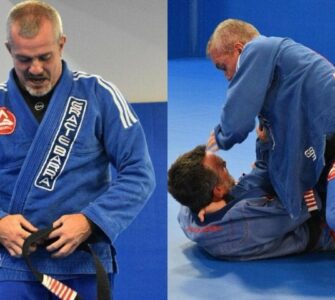Many things can be said about John Danaher but rarely is his approach questioned. No matter what his focus was, he managed to produce outstanding champions for both mma and bjj scenes.
However Danaher, a philosophy scholar, might have a very different approach to coaching which could in part explain the success of his underlings.
One important distinction? Jiu jitsu as warfare on an individual scale, Danaher writes proposing a knowledge of the military theory and not just contemporary adversaries.
Danaher writes:
Jiu jitsu as warfare on an individual scale:
I am a proponent of what we might term the doctrine of scale – the idea that individual combat shares the same themes, concerns and lessons as massed combat, all the way up to wars between nations.
As such, when people ask me what kind of people I study to improve my jiu jitsu, my response is often to go beyond the sources that most people go to, contemporary champions of the sport; and make forays into military theory and history. It is my belief that there is much to be learned from the many outstanding thinkers in this area that can provide insight into your development in jiu jitsu.
There are a vast number of brilliant military theorists and practitioners starting long before Sun Tzu and going all the way through to the modern age figures such as John Boyd. Two military theorists who had a big effect on my approach to jiu jitsu were the Englishmen, J. F.C Fuller and BH Liddell Hart. From Fuller I learned to emphasize the great value of technical innovation in combat. From Liddell Hart I learned to emphasize indirect methods of attack above all others along with concentration of force being more important than overall force. Interestingly, Liddell Hart appears to have been familiar with the jiu jitsu/Judo notion of kuzushi (breaking an opponent’s balance prior to attack) – he makes several references to it in his writing and considered it essential to successful attack. Whilst both men were brilliant in their domain, both had their flaws. Fuller appears to have leaned overtly towards Fascism in his political beliefs and got worse in this regard as he aged. In addition he seemed to have flirted with strange occultist beliefs throughout his life. Liddell Hart seems to have been involved in some degree of personal aggrandizement after WW2. Still, there is no denying their brilliance within their field and its potential value to a jiu jitsu student.
In their military writings there are many gems- here is one from Liddell Hart. “Helplessness induces hopelessness, and history attests that loss of hope and not loss of lives is what decides the issue of war.”

















